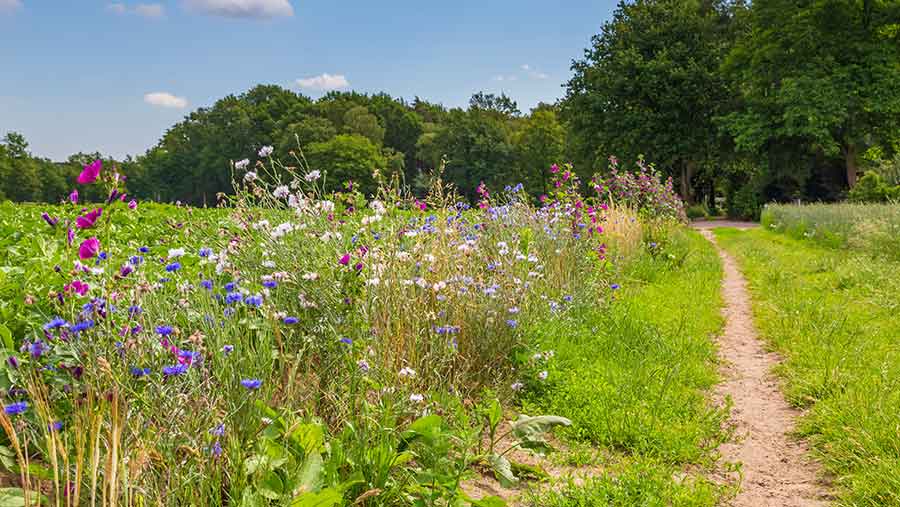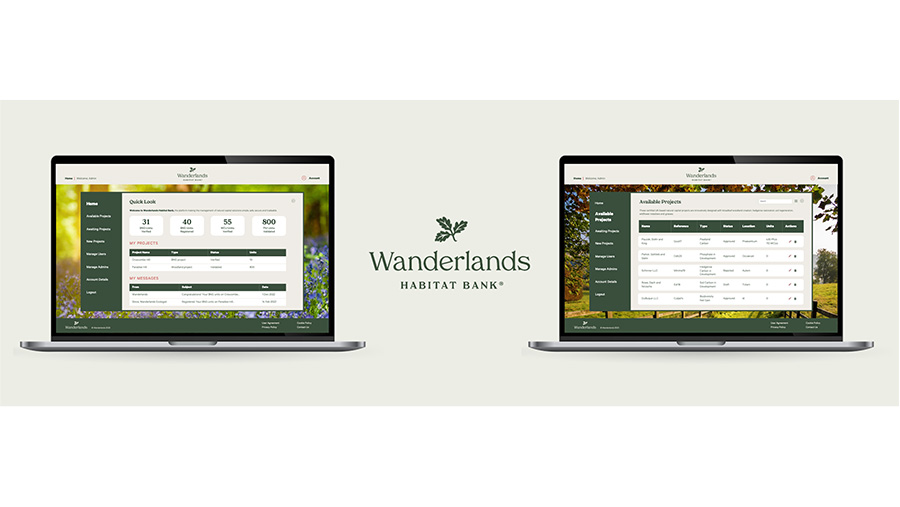Advertiser content
The benefits of nature markets for farmers
Stewards of climate action
To achieve truly sustainable agriculture, the farming community as primary owners and stewards of the nation’s land needs to rapidly adjust its practices and approaches to how land is optimised due to climate change.
The impacts of which, as farmers, you continue to witness first-hand, such as the wetter milder winters, drier summers, and the simple fact that our skies and fields are less full of life.
The recent ‘State of Nature Report’, produced by The State of Nature Partnership group, states that only one in seven of our natural habitats are in good condition and that one in every six species is at risk of being lost forever to extinction.
Nature markets in the UK
There are numerous ways in which farmers can play their role in helping to decarbonise our society. One of these ways is through habitat restoration.
New nature markets are emerging with the backing of the UK government and private businesses that aim to attract funding to support the preservation and restoration of our natural habitats to former sustainable levels.
In March, the government announced its target to raise £500 million in private finance to support England nature’s recovery every year by 2027, rising to more than £1 billion per year by 2030.
These initiatives encourage private sector investment in nature through the creation and trading of natural capital units.
In essence, these are calculated units of natural habitat attributed to a per-hectare parcel of land.
These include woodland carbon units, peatland carbon units and biodiversity units.
The carbon and biodiversity markets are the two major markets experiencing rapid growth, due to the legal reporting requirements of companies and businesses to stipulate their carbon footprint mitigation plans and property developers’ need to enhance biodiversity on any future developments.
The carbon market aims to pull greenhouse gas out of the atmosphere, sequestering it into new woodlands and hedgerows through soil enhancement approaches.
The biodiversity market targets the loss of biodiversity from property development and aims to encourage interventions that enhance the potential of marginal land to harbour a large new diversity of fauna and flora.

© Wanderlands
New revenue for farmers
It would be reasonable to be thinking ‘This is all well and good but what are the potential benefits of nature markets over my core farming activities?’ – the answer is simple.
Leveraging marginal land to create biodiversity-rich projects will open lucrative new revenue streams.
Typically grade 4 and 5 land provides no material benefit from investment for farming purposes.
As such it can transformed into natural capital assets that sequester carbon, restore biodiversity, and generate units that can be sold on the open market.
For instance, biodiversity units can be sold to property developers to allow them to deliver the new biodiversity net gain legal requirements.
The current average market value of a biodiversity net gain unit is starting at £20,000 – £25,000 per unit – this is for a grassland unit and others will be higher.
Explore and engage confidently
Although it may appear that accessing nature markets can be complicated and a new experience for most farmers, it is a straightforward process.
Published earlier this year by Defra, The Nature Markets Framework sets out principles for how the government sees new and emerging nature markets developing.
It also introduces Defra’s work with the British Standards Institution (BSI) to develop a range of nature investment standards that provide clear rules for farmers’ access to payments from nature markets.
Investment in natural capital projects is increasing due to rising regulatory requirements being imposed on businesses and developers.
Through our experience of working with these audiences, Wanderlands Land Consultancy supports farmers to optimise these new income streams through natural capital projects and connect with future buyers through our Habit Bank platform.

© Wanderlands
Introducing Wanderlands Habitat Bank
Working with farmers on natural capital projects across the UK, we enable you to deliver biodiversity and woodland carbon units through innovative site designs that integrate a variety of habitat creation and restoration aspects including broadleaf woodland, wildflower meadow, hedgerow, soils, ponds, and lakes.
When it comes to registering, managing, and trading your units, we leverage our innovative new platform, Wanderlands Habitat Bank.
With just a few clicks, potential buyers can enquire about your project availability, access site inventory documentation, and commence the process to secure and agree to the purchase of units.
Powered by blockchain technology, you can keep a comprehensive record of secure information that provides a complete history of your site, from the initial ecological assessment and statutory approvals, all the way through to the most recent maintenance reports and unit validation certificates.
Optimise opportunities in the nature markets with your projects and units hosted on Wanderlands Habitat Bank.
Discover more at www.wanderlands.earth/habitatbank.
Provided by
Wanderlands is an environmental sustainability consultancy working with farmers and landowners to transition towards net zero and optimise marginal land assets that sit outside of land dedicated to food production. Through biodiversity enhancement projects on marginal land, we enable access to lucrative revenue opportunities within the nature markets.
Secure a sustainable future and financial return for your farm enterprise. Visit www.wanderlands.earth/landowners.
